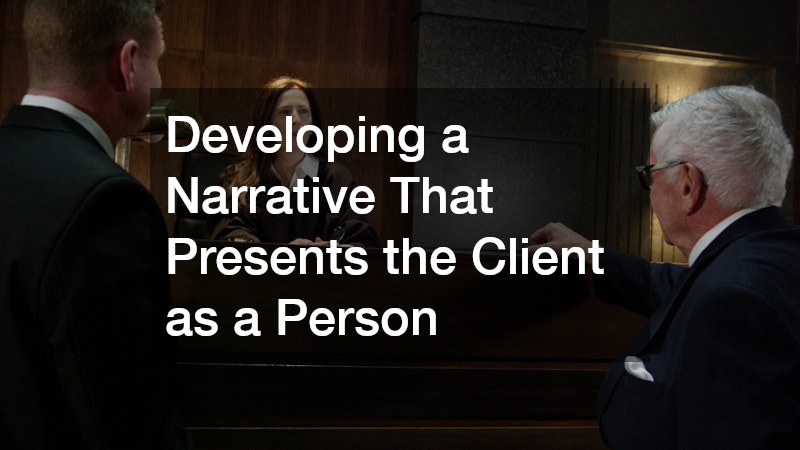
This section introduces the role of a criminal defense attorney, highlighting the complexities and challenges they face in the legal system. It sets the stage for exploring the intricacies of their mindset and strategies. Criminal defense attorneys are a pivotal element of the judicial system, offering a voice to those accused of crimes and ensuring a fair trial. Their role requires not only a deep understanding of the law but also a strategic mindset adept at navigating the turbulent waters of the courtroom. This article delves into the motivation, preparation, and obstacles encountered by defense attorneys, providing a comprehensive outlook on their critical contribution to justice.
What motivates a criminal defense attorney?
Criminal defense attorneys are often driven by a strong sense of justice and a commitment to uphold the principle that every individual deserves a fair trial. Many are motivated by the desire to ensure that the legal rights of the accused are protected, regardless of the public perception of the crime. Their work is not just about defending the client; it’s about challenging the state’s evidence and ensuring that proper legal procedures are followed. Moreover, the possibility of influencing a person’s life by securing their freedom or reducing their sentence is a powerful motivator. The deep empathy for human variability and the belief in the possibility of rehabilitation is central to their professional drive.
Another source of motivation of criminal lawyers is their passion for the intellectual challenge the profession presents. Each case is unique and presents a complex puzzle that requires creative and strategic thinking to solve. They must constantly learn and adapt to new laws, technologies, and methodologies, ensuring that their legal strategies are current and effective. Furthermore, the adversarial nature of the courtroom can be exhilarating, pushing attorneys to refine their persuasive abilities and tactical acumen. This dynamic environment keeps many attorneys not just engaged but genuinely passionate about their work.
How do defense attorneys prepare for a case?

The preparation for a case begins with a thorough examination of the evidence and detailed discussions with the client. Defense attorneys devote significant time to understanding every aspect of the case, reviewing police reports, witness statements, and any other relevant material. This preliminary investigation is crucial in identifying any inconsistencies, procedural errors, or gaps in the prosecution’s case. Attorneys must also meticulously research case law and legal precedents that could impact the defense strategy. Such rigorous preparation allows them to craft arguments that can effectively counter the charges against their client.
Beyond the tangible evidence, building a robust defense also involves understanding the client’s personal history, motives, and circumstances surrounding the alleged crime. This knowledge allows attorneys to humanize their clients, offering context to the jury and the court. Developing a narrative that presents the client as a person rather than merely a defendant is a critical aspect of case preparation. To achieve this, attorneys often engage expert witnesses, psychologists, or other professionals who can provide insights that support the defense. By weaving together factual and personal elements, attorneys aim to create a comprehensive picture that fosters empathy and understanding.
What are the biggest challenges faced by criminal defense attorneys?
One of the primary challenges faced by criminal defense attorneys is the societal stigma associated with defending individuals accused of crimes. There is often a public misconception that defending a client equals condoning their actions, leading to potential bias and prejudice against the attorney. This can impact at various levels, from interactions with the public to decisions made by judges and juries influenced by media portrayal or community sentiment. Defense attorneys must constantly work to counter these biases, ensuring their clients receive a fair trial amidst external pressures. This aspect of their work requires resilience and a firm commitment to their ethical responsibilities.
Another significant challenge is the often overwhelming caseload that defense attorneys must manage. Many attorneys, particularly those working in public defense, juggle numerous cases simultaneously, often with limited resources and support. The high demand can lead to pressure and burnout, affecting the quality of representation and, ultimately, the client’s right to a fair defense. Balancing a heavy workload while upholding high standards of legal practice requires exceptional organizational skills and time management. To navigate this, attorneys must prioritize and efficiently allocate their energy across various cases, ensuring that each client receives the attention they deserve.
This section summarizes the insights shared throughout the article and underscores the significant role of criminal defense attorneys in the justice system, emphasizing their dedication, ethical considerations, and the profound impact of their work on individuals and society. The journey and daily realities of a criminal defense attorney highlight not only the complexities of the legal system but also the passion and commitment required to advocate for justice. Despite facing numerous challenges, including societal biases, heavy workloads, and complex legal intricacies, these legal professionals remain steadfast in their mission. It is their unwavering dedication that ensures the integrity of the legal system, protecting the foundational right to a fair trial for all. In recognizing the indispensable role of criminal defense attorneys, we acknowledge their crucial contribution to upholding justice and equality in society.
